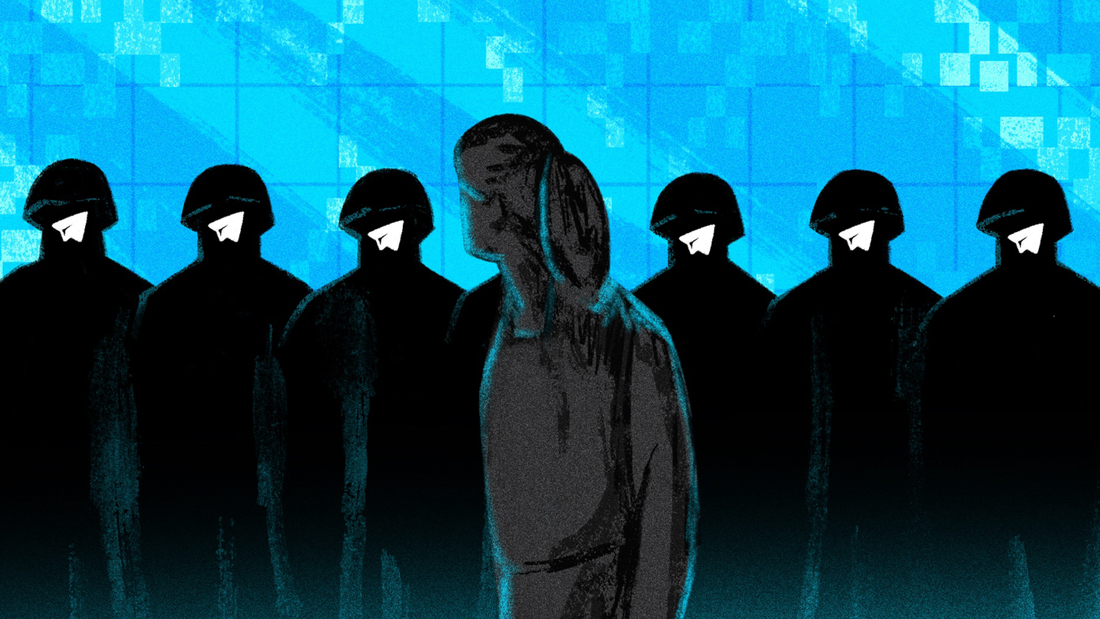
They released a sex video to shame and silence her. Myanmar women are being abused online by supporters of the military
Since the coup in Myanmar in 2021, thousands of women have faced abuse online for their political beliefs. This is happening notably through the use of gendered hate speech and sharing of sexual videos and images, data shows. CNN investigates why and uncovers the impact on women and the lives...
By Pallabi Munsi, CNN
Updated 10:59 AM EST, Tue February 7, 2023
Editor’s Note: This story is part of ‘Systems Error’, a series by CNN As Equals, investigating how your gender shapes your life online. For information about how CNN As Equals is funded and more, check out our FAQs.
CNN —
In the summer of 2021, Chomden was abroad, thousands of miles away from her home in Myanmar, when a friend sent her an urgent message informing her that an intimate video of her was being shared online.
When she saw the message, the 25-year-old said she froze “like a statue,” her phone falling from her hand. She had just been doxxed.
A video of a naked Chomden – whose name has been changed to protect her identity – having sex with a former boyfriend, along with her name and Facebook profile picture, was circulating on a public channel on the messaging platform Telegram, and many of the group’s approximately 10,000 followers had begun sending her abusive messages.

It had been just six months since Myanmar’s civilian leader Aung San Suu Kyi was removed from power in a military coup led by General Min Aung Hlaing, who set up the State Administration Council (SAC) and now governs the country’s caretaker government as an unelected prime minister.
Chomden had been on holiday at the time of the February 1 coup, and felt too scared to return home, but she says she had also felt obligated to speak out on social media about the plight of Myanmar’s people and the junta’s swift and brutal repression of critical voices, sharing video testimonies from people still in the country.
Far away from home, she had assumed she would be safe from any reprisals for her criticism of the ruling junta, but Chomden had not considered the possibility of online retribution.
Now, months after the coup, her once private video had been made public – on a channel run by supporters of the military and used to circulate propaganda and dox people believed to oppose the SAC. Chomden’s Facebook picture included a filter showing the flag of Myanmar’s shadow government, the National Unity Government (NUG), identifying her as a supporter of the country’s deposed, democratically elected government.
The accompanying text on the Telegram post, written in Burmese by the channel administrator, read: “The whore who is having sex with everyone and recording it in HD… Know your position, slut!”
She was also blackmailed by strangers claiming to have more videos of her, she says, and with no support system nearby, Chomden felt lost. The fallout from the post took such a toll on her mental health that she said: “I have to admit that I even thought of killing myself.”
“They wanted to destroy my life,” she told CNN.
Thousands of “politically active” women doxxed or abused

After the coup two years ago, as state repression intensified, civilians came together to defend towns and villages, and some rebel armies with a long history of conflict against the military united under the People’s Defence Force (PDF), armed units aligned with the shadow government.
Fighting has since displaced hundreds of thousands of people and many now fear a deepening civil war.
But conflict in Myanmar is not only happening on the ground; attacks are prevalent online, and doxxing has emerged as a tool used extensively by supporters of the junta to threaten and silence people they see as their opponents.
Doxxing is the act of publicly identifying or publishing “private information about someone as a form of punishment or revenge” – and men and women are being targeted in different ways.
When men are targeted, posts typically insinuate that they are linked to terrorist groups working to bring down the junta, multiple experts from NGOs and digital rights groups in the region told CNN. But when women are doxxed, the attacks frequently feature sexist hate speech, often coupled with explicit sexual imagery and video footage of them, as was Chomden’s experience.
And in Myanmar, simply sharing the names and faces of people purported to support democracy can put those people at risk of arrest, while exposing private videos and photos subjects them and their entire families to societal shame.
Separate analyses by CNN and NGOs working in Myanmar shows this is all happening extensively on Telegram (which grew in importance after the military ordered Facebook to be temporarily blocked following the coup and has continued to block access since then), and activists are calling on the messaging company’s Russian owners to take urgent action to stop this violence being perpetuated through their app.
A CNN analysis identified hundreds of sexual videos and images used in pro-military Telegram channels abusing women, often for having pro-democracy views, and hundreds more using sexual terms to achieve the same goal. A separate analysis by Myanmar Witness – a project run by the UK-based Centre for Information Resilience that uses open-source tools to uncover human rights abuses – in collaboration with grassroots organization Sisters2Sisters published recently looked at more than one million Telegram posts following the coup and found further evidence of this.
“We saw that (up to) 90% of the abusive posts were perpetrated by channels that appear to be pro-military and pro-SAC and ultra-nationalist groups … targeted towards pro-democracy women,” Me Me Khant, who led the Myanmar Witness research, told CNN.








